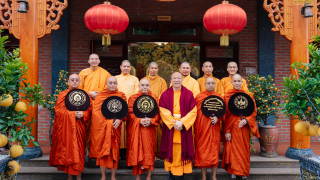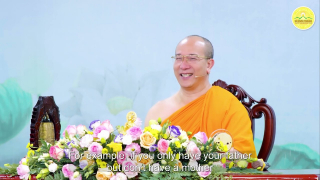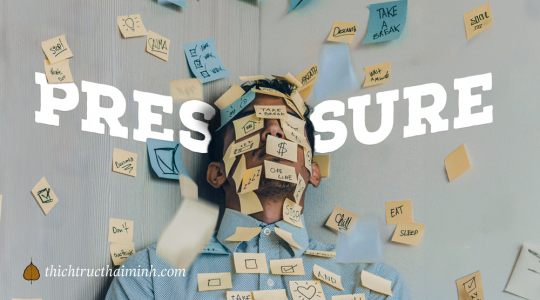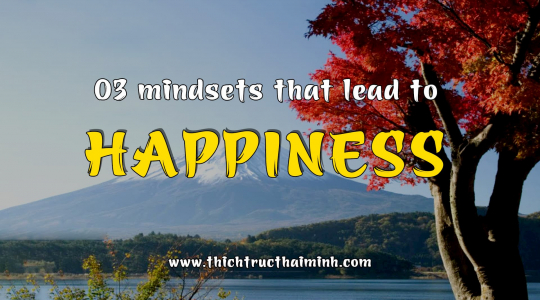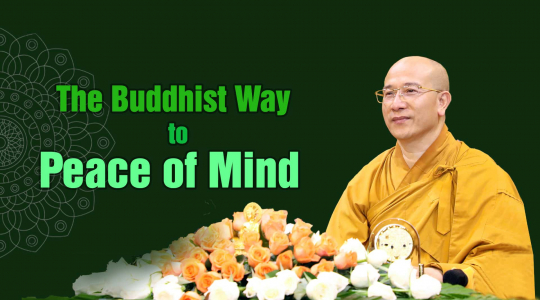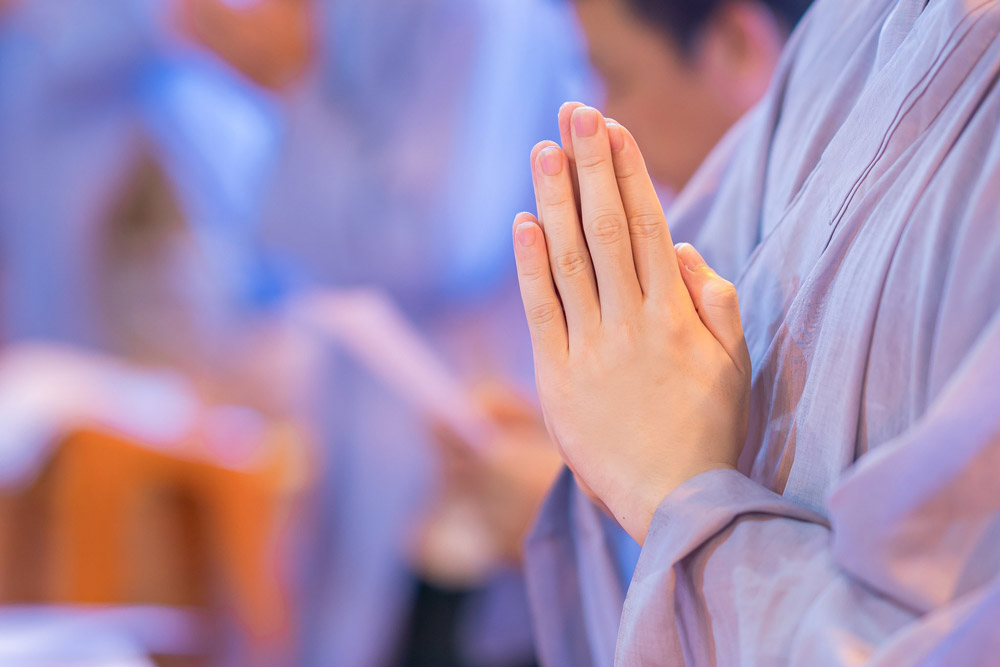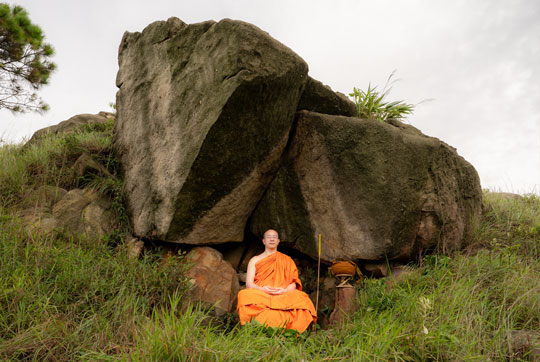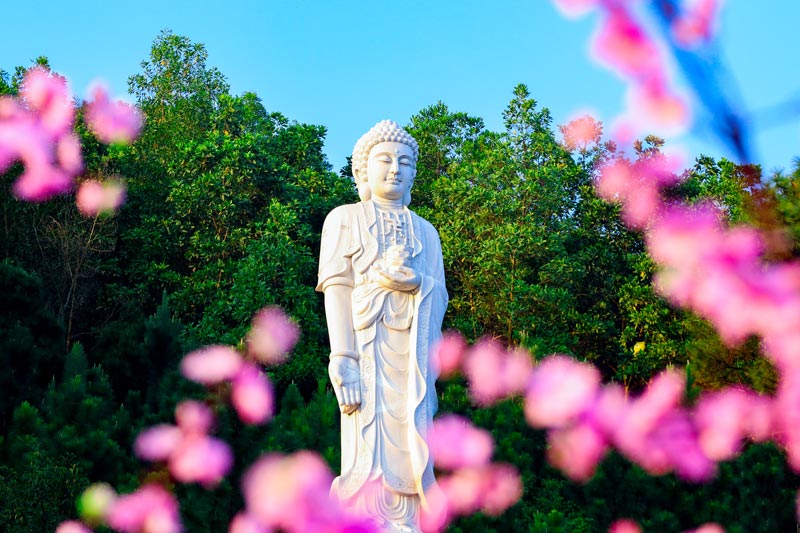How to overcome fear to live life to the fullest
Table of contents [Hide]
- What are we often in fear of?
- Why do we have fear?
- Shocking events
- Lack of understanding of what fears us
- Incapacity to control what makes us fearful
- How to overcome fear?
- Step 1: Focus on the sensation, not the object
- Step 2: Observing the fear until it fades away
- The root of fear
- How to eradicate the root of fear
- Observing precepts renders us fearless
Are you in fear of anything? Is your fear a major obstacle to you? This post will give you some great insights into your fear that you may have never known as well as methods of how to overcome fear.
Humans often feel a great sense of pride that they are the owner of this planet. Many of them share the thought that they can explore, create and rule everything. Nonetheless, people still face many fears and even phobias. Struggling to find out how to conquer fear, many have failed to approach long-term solutions to live a better life.
What are we often in fear of?
Everyone has their fears regardless of age, gender, and status. A wide range of fears haunts us and hinders us from enjoying a comfortable life.
It is not strange that many people obsess about the dark, heights, or traveling by plane. Even some insects or small creatures such as spiders and cockroaches scare them. Some are afraid of sleeping alone or talking in front of a crowd. Some people get terrified whenever they see blood. Those may seem harmless to someone but drive others frightened. Such fears, also called phobias, can deprive us of happiness in life.
Besides, fears for relationships, ownership, reputation, career, etc. often concern a normal person. A woman fears losing her beloved spouse. A businessman fears to meet with failure. Whilst being prestigious and rich, a man may fear losing his status and property. Especially, many of us have a fear of ghosts, though we have not known clearly about them yet.
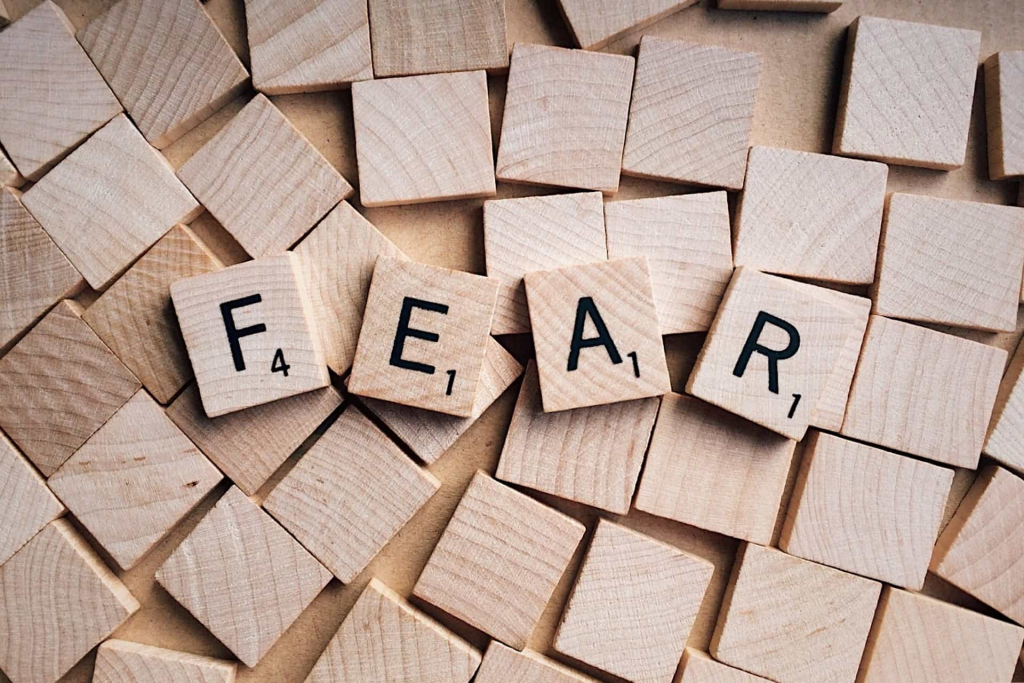
How to overcome fear is a big question
Why do we have fear?
Our fears stem from many causes that we can categorise into these followings.
Shocking events
We can trace our fears back to undesirable memories. As Thay Thich Truc Thai Minh said, traumatic experiences strike us critically. Our mind records all the events that make us strongly tremble, so it takes us great efforts, patience, and time to remove them completely. The more these experiences shock us, the harder it is to leave them behind.
We are fearful of what made us hurt in the past. A woman who did fail in love affairs may fear starting a new romantic relationship. Children who grew up in an unhappy family tend to fear making the same mistakes that their parents did. Keeping looking back on what happened makes us trapped in the past and hard to freely enjoy life.
Lack of understanding of what fears us
We tend to be in fear of what we do not understand. A typical example is that some of us are scared of ghosts because we do not know what they look like. In the same way, we may get into a panic when moving to a new place because we do not know what awaits us.
Incapacity to control what makes us fearful
Facing a situation that we hardly have control over can confuse us. Thay gave some vivid examples to illustrate this point. A pregnant woman fears for her fetus' safety because she does not know how her baby is developing. Passengers going on board may get nervous since they have to depend on the pilot, captain or driver for their own safety.

A pregnant woman fears of her fetus' safety
How to overcome fear?
In a one-day retreat of Ba Vang Youth Club, a student told Thay Thich Truc Thai Minh that bad memories often haunted her. She asked Him to show her how to calm her mind whenever she fell into that state. What Thay advised her will provide us with useful guidelines on managing fear.
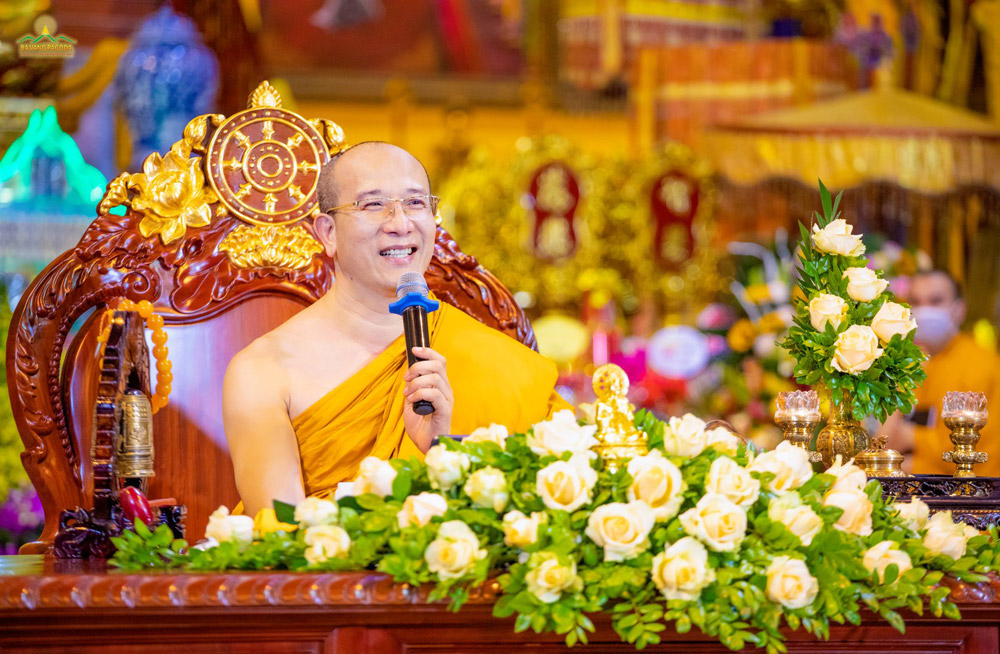
Thay Thich Truc Thai Minh giving a Dharma talk
Step 1: Focus on the sensation, not the object
Thay said, “When you recall bad images of the past, reflect on your mind. Keep track of your mind and don't pay attention to the images.” For example, when the memory of being insulted in our childhood comes back to us, dwelling on those hurtful images only deepens our sadness. We should not pay attention to the images that someone scolded, abused or harmed us anymore for it just makes us feel more scared. “Pay attention to our emotions instead of the images,” Thay shared, “because all those flashbacks get you into sadness and misery.” This is the first step of how to overcome fear that we should embrace.
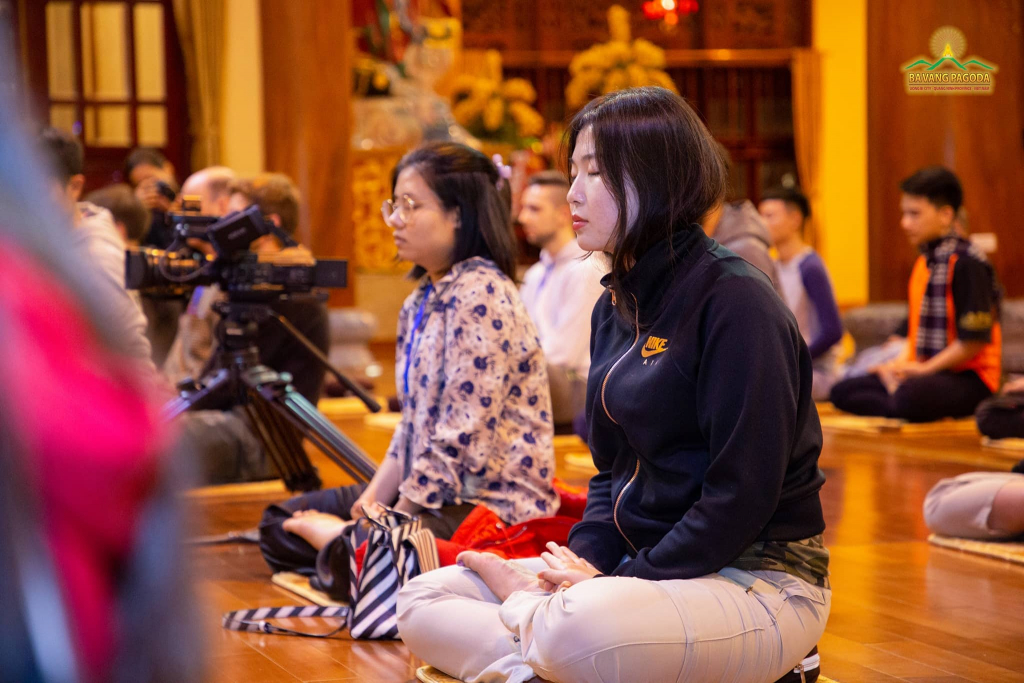
The first step of how to overcome fear is to focus on the sensation. (Photo: Participants of the 2-day Meditation Experience Program meditating in the Main Hall of Ba Vang Pagoda)
Step 2: Observing the fear until it fades away
We know that sensation dominates us. “We tend to chase the sensation of pleasure and deny that of suffering,” Thay stated. “If we observe our sensation,” He added, “gradually they will fade away. That is how the mind works.” Face your sensation when fears pervade our mind and observe them.
In Buddhism, this means the “contemplation of sensation”. In a more detailed manner, Thay once explained the contemplation of sensation: “For example, if our body aches, we should keep track of how the sensation of pain arises, where it arises from, to what extent it peaks. It peaks somewhat and then it settles. After it settles, it vanishes. So where does it go? When a sensation ends, a new one begins. Every day, we have to respond to sensation,” Thay added, “Therefore, the practice of contemplating sensation is crucial so that gradually we can take control over and withstand sensation.” Similarly, that is how we can deal with the sensation of fears.
The root of fear
In the view of Buddhism, the essence of fear is our delusive thoughts of ego. Due to this delusion of our ego, we have a fear of whatever influences or endangers us. Thay Thich Truc Thai Minh gave compelling examples to prove this point, “We are scared of losing our property. Why don't we fear that others will lose their property? Because their property is not ours. Likewise, we feel nervous when our children come back late from school. We do not fear for others' children.”
Once we cling to our ego and to what is ours, we still have fear. “The essence of objects and phenomena are the temporary and unreal formation of conditions. It is impermanent. Yet, we mistake them as reality and permanence. That's why we suffer,” Thay remarked. The Buddha taught greed and attachment induce fear. It is the Buddha Dharma that renders us aware of the root of fear.
How to eradicate the root of fear
Some psychologists counsel us on how to overcome fear by grasping hands, shouting, singing and deeply inhaling. These techniques cannot comprehensively approach fear. The Buddha showed us the root of fear is our ego which originates from ignorance. Learning and practising the Buddha Dharma is the way we take our steps on the path to non-ego. Only when we eradicate our ego can we liberate ourselves from fear.
Arhatship is one of the highest stages of liberation in Buddhism that can cut off all the roots of fear. An Arhat fears nothing because he has no ego. His mind is so pure that no causes of fear can dwell in it. No longer does an Arhat cling to life and fear death, thus, no one and nothing can make an Arhat fearful.
Unless we eradicate our ego, our fears will never end. In the cycle of birth and death, reborn as humans, we will continue to be attached to our property, our family, and our status. As Buddhists, we should learn, practise and contemplate on non-ego.
Since this notion is not easy to understand firsthand, Thay explained non-ego or selflessness as follows. “What is the self? Are these eyes the self? Is this nose the self? Are the teeth the self?”, He added, “We can replace our teeth with dentures, likewise our heart, liver, and lungs. So what is the self? Nothing is the self. From this way of reflection, we can find what the Buddha said undisputable. The concept of non-self in Buddhism is so distinctive and precious.”

An Arhat fears nothing because he has no ego. (Photo: the Arhat corridor at Ba Vang Pagoda.)
Observing precepts renders us fearless
Thay affirmed, “People who strictly observe precepts have lucid minds. They are so calm and free because they can make their minds concentrated. A concentrated mind enables us to be fearless. Normally, our mind is not concentrated, so we get into a panic when we enter a crowd. Although we commit no crime, we get scared when joining a crowd because of our unstable mind.” Certainly, this does not mean that people who have fears are those who do not comply with precepts. However, this can serve as a motive for us to take refuge in the Three Jewels, become Buddhists, and observe precepts.
The Buddha always taught us to tame our mind under any circumstances. No matter what makes us fearful, there is no other way than returning to our mind. Indeed, all that causes our fears originate from our mind, not from external factors. This awareness will make us comprehend how to overcome fear to live life to the fullest.


